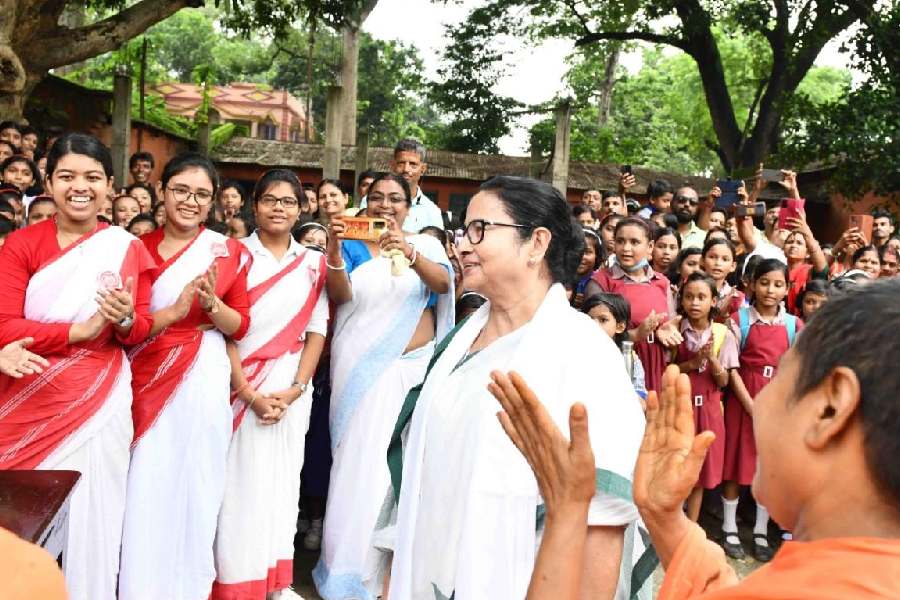Mamata Banerjee on Tuesday did what her Manipur counterpart N. Biren Singh could have done before May this year as an attempt to avert the clashes between the Hindu-majority Meiteis and primarily Christian Kuki-Zo tribes.
The Bengal chief minister, in Jhargram on Tuesday, held two separate meetings with leaders of the tribal and Kurmi communities, which are at loggerheads with each other over the Scheduled Tribe tag.
Mamata gave both a patient hearing and promised them her support, before urging them to steer clear of any violence.
The attempt by the Bengal chief minister, a political observer said, was an example of how the administration can proactively intervene to address conflicts between communities and defuse tension before it explodes.
“Today Manipur is in trouble.... Had the state government there acted more carefully on time, it might not have happened to this extent,” said Subhamoy Maitra, a political commentator and a professor at the Indian Statistical Institute. “Particularly in... Jungle Mahal where the conflict between two communities is growing, Mamata Banerjee is proactively attempting what a chief of the administration should do,” he added.
In April, Manipur High Court directed the Biren Singh-led BJP government to consider the request of the majority Meitei community for ST status within four weeks and to send a recommendation to the Centre for its consideration. The Kuki-Zo, who have been at odds with the Meiteis for decades, protested against the court decision, which triggered an unprecedented flare-up that the state and central governments are finding tough to tackle even now.
The scale of the problem between the tribals and Kurmis in Bengal’s Jungle Mahal may not be the same as there has not been any report of violence involving them, but the genesis of the present conflict is very similar.
The Kurmis, comprising around 35 per cent of the 1.57 core population in Jhargram, West Midnapore, Purulia and Bankura, have been demanding ST status since 2018. Tribal communities, which constitute around 34 per cent of the population in these districts, are opposing it tooth and nail as they don’t want more claimants to their share of ST benefits.
Both the communities are regularly organising events such as rail and road blockades amid indications that the strife may grow bigger if left unaddressed.
During her two community meetings on Tuesday, Mamata spoke of the Manipur violence to explain how community clashes could end up burning the state.
“The chief minister said the incident in Manipur hurt her.... She requested members of tribal and Kurmi communities (in Bengal) to maintain peace even if there are differences in opinion. Members of both communities promised her they would not let things go the Manipur way...,” said a source present in both meetings.
Then, Mamata shared her pictures with representatives of both the communities on her Facebook profile and said her talks had been fruitful.
The situation in Jungle Mahal deteriorated after several Kurmi leaders were arrested on charges of attacking the car of junior forest minister Birbaha Hansda, from the tribal community, while she was part of the convoy of Trinamul general secretary Abhishek Banerjee in June this year.
During Mamata’s meeting with the Kurmi leaders, Rajesh Mahato, the secretary of Adivasi Kurmi Samaj West Bengal, who was arrested and then released, was also present.
Mahato later said they assured the chief minister that they would not take the path of violence, but pursue their demand for the ST tag “democratically and peacefully”.
Dhyanga Hansda, a tribal leader associated with the Bharat Jakat Majhi Pargana Mahal, also said the same. “We are always for peace in Jungle Mahal,” he said.











